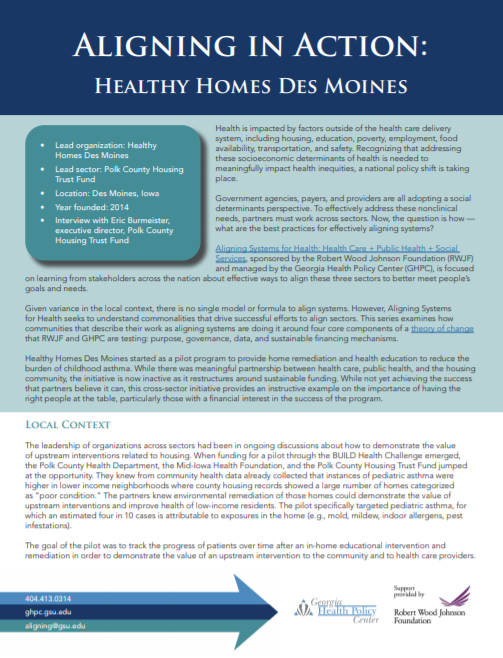
This case study examines Healthy Homes Des Moines, a pilot program to provide home remediation and health education to reduce the burden of childhood asthma. The goal of the pilot was to demonstrate the value of an upstream intervention to the community and to health care providers. The pilot specifically targeted pediatric asthma, for which an estimated four in 10 cases is attributable to exposures in the home (e.g., mold, mildew, indoor allergens, pest infestations).
When funding for a pilot through the BUILD Health Challenge emerged, the Polk County Health Department, the Mid-Iowa Health Foundation, and the Polk County Housing Trust Fund jumped at the opportunity. They knew from community health data already collected that instances of pediatric asthma were higher in lower income neighborhoods where county housing records showed a large number of homes categorized as “poor condition.” The partners knew environmental remediation of those homes could demonstrate the value of upstream interventions and improve health of low-income residents.
While there was meaningful partnership between health care, public health, and the housing community, the initiative is now inactive as it restructures around sustainable funding. While not yet achieving the success that partners believe it can, this cross-sector initiative provides an instructive example on the importance of having the right people at the table, particularly those with a financial interest in the success of the program.
Aligning Systems for Health: Health Care + Public Health + Social Services, supported by the Robert Wood Johnson Foundation and managed by the Georgia Health Policy Center, is focused on learning from stakeholders across the nation about effective ways to align these three sectors to better meet people’s goals and needs.

 Back to Resources
Back to Resources